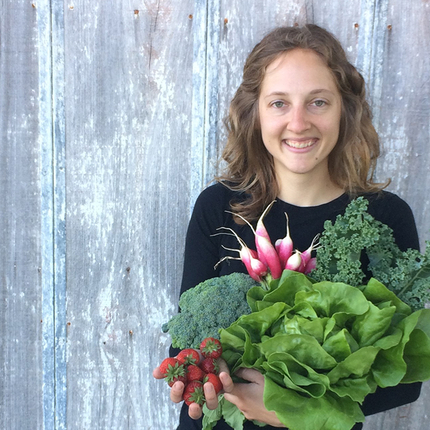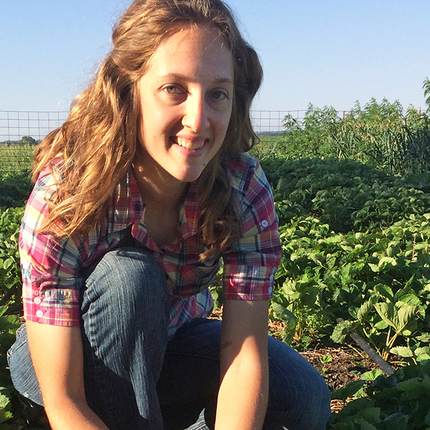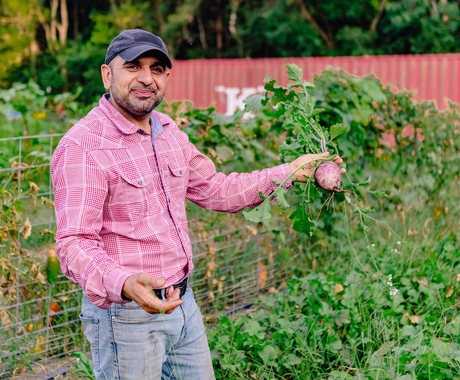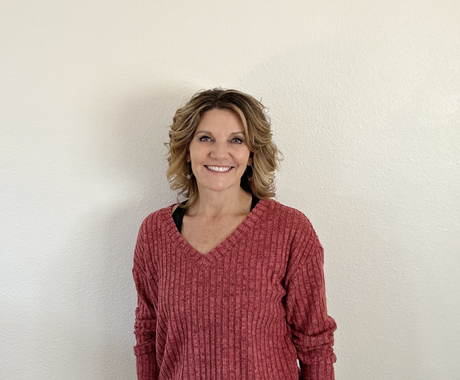America’s agricultural history spans generations. Some of the family farms still in operation today have been feeding our neighbors for more than 100 years, and will continue to do so for the foreseeable future.
Katie Jantzen not only believes in preserving that history, she’s living proof of how successful maintaining family farms can be.
Operator of West End Farm, near Plymouth, Nebraska, Katie is the fifth generation to grow crops on her family’s land, which has been farmed since 1882. While her parents still grow corn and beans, and raise some laying hens, Katie rents the land that used to be dairy cattle lots for her produce plots.
“Family farms are the historic backbone of our country,” she said. “I recognize things change, and most people in this country no longer get the majority of their food from small family farms. But, I think we should question the direction in which our food system is headed. Is bigger really better, and is industrialization of the food system sustainable—economically, environmentally, and socially?”
To answer those questions, Katie has spent a good chunk of her adult life researching those ideas, and continues that mentality with how she runs West End Farm.
Learning circles lend a helping hand
In her quest to stay on top of the best methods and ideas for her farm, Katie has attended several women’s and beekeeping learning circles through the Center for Rural Affairs.
The Center’s learning circles are peer group sessions that consider attendees as the experts on their own production, farmland, and conservation needs. Information, experience, and resources are shared at each circle, allowing participants to implement what they’ve learned into their own farm business or operation.
“I really like this model of being able to see a farm (or apiary) and discussing ideas and questions with the other attendees who are often quite knowledgeable,” she said. “Because beekeeping is something I'm relatively new to, attending those learning circles has been especially helpful in providing me with resources and ideas, as well as finding new ideas for things to try on my farm.”
Local food producers benefit the environment
Katie operates a Community Supported Agriculture (CSA), which she says is like a produce subscription, but with a community connection.
“Being a local food producer is important to me for environmental reasons as well as for social reasons—I get to know each of my customers personally, and they get to know their farmer and where their food comes from,” Katie said.
She also sells her produce at a farmers market and knows many of her repeat customers there, though the CSA is the primary marketing venue for her farm.
Katie’s CSA is seasonal and runs for 20 weeks from early June through mid-October. Since she grows about 40 different crops, people find different things in their boxes each week.
“I observed this model at several other farms I worked for or volunteered at, and I like the community aspect and the risk-sharing involved,” she said. “I also think it's a great win-win: farmers can lock in customers and payment at the beginning of the season, and consumers get to know and support their farmer and receive fresh produce all season long. It's a great way for people to eat healthy and support a local farm.”
The farmer grows common garden vegetables including peppers, tomatoes, beans, peas, carrots, beets, and more, as well as watermelon and cantaloupe. Katie also has several different herbs like cilantro, basil, and parsley, in addition to more unique vegetables like okra, kohlrabi, and leeks.
West End Farm is also home to bees. Katie started keeping bees at the beginning of 2018 by purchasing two established hives from a farm she used to work for, and then starting her own hive package.
“The bees are a nice complement to the produce, as they pollinate many of the crops I grow, and they also collect nectar from the cover crop surrounding the produce plots,” she said. “CSA customers appreciate the opportunity to purchase local honey products like liquid, chunk, and comb honey, and beeswax.”
Food council membership fuels forward momentum
Katie’s interest in food systems and farming has led her to the newly-formed Nebraska Food Council.
“I've enjoyed attending training sessions and meetings with the council to learn more about the diverse challenges and opportunities we face in Nebraska,” said Katie. “One of my recent focuses with the council has been the passage of Legislative Bill 304 to allow broader market opportunities for cottage food producers in our state.”
Her membership on the council only increased her desire to strengthen the food systems in Nebraska.
“Right now, the way we get food in this country is highly dependent on complex supply chains and shipments of food from distant places,” Katie said. “Not only is this not particularly helpful for local economies, it's a food security risk. Nebraska imports 90 percent of the food we consume, even though we have the capacity to produce a good portion of that.”
Community and family farms work hand in hand for a sustainable future
Katie has high hopes for the state as a whole, and says it all comes back to the little family farms, keeping them strong for generations to come.
“Small farms and local food producers are important social players in their communities, and are also integral components of the local economy,” said Katie. “I'm back on my family farm because I value our family's history there, because I value the community I'm a part of in rural Nebraska, and because I value the contribution that small farms make to our local and national food systems and economies.”






